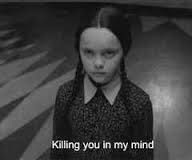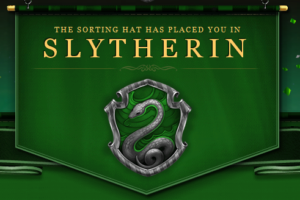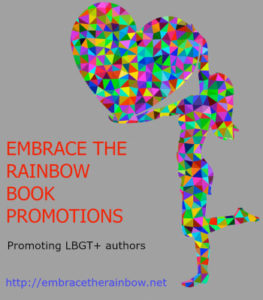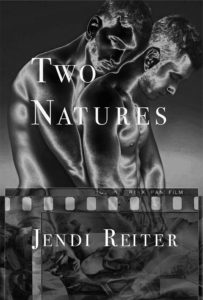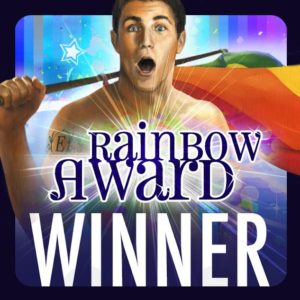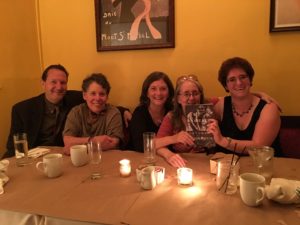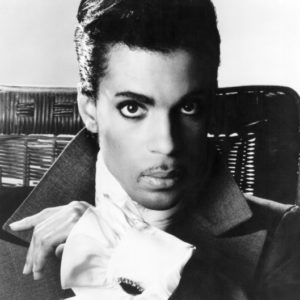How times have changed at Reiter’s Block. Only a few years ago I would have been reporting on the Wheaton Theology Conference. Now my idea of a spiritual retreat is NecronomiCon Providence, the biennial convention for writers, artists, scholars, and fans who shamble in the footsteps of that 20th-century master of weird fiction, H.P. Lovecraft (1890-1937). This will be the first of several posts on the convention and revisiting Lovecraft’s work.
HPL penned classics of cosmic horror such as “The Call of Cthulhu” and “The Shadow Over Innsmouth”, as well as being an influential editor, collaborator, and mentor to many other writers in the genre. His literary heirs include prominent horror writers such as Robert Bloch (Psycho), Thomas Ligotti, and Ramsey Campbell.
It’s strangely fitting that his beloved Rhode Island hometown (his tombstone reads “I Am Providence”) bears the name of a religious belief whose loss tormented him. Divine Providence, the idea that world events are meaningfully directed by a God who placed humanity at the pinnacle of creation, is precisely what has been swept away in Lovecraft’s cosmos. His characters are driven mad by discovering that powerful uncanny forces, superior and indifferent to humans, are lurking below the fragile surface of this illusion we call civilization. Ignorance truly is bliss, but unachievable, as there is nothing so tragically human as the quest for hidden knowledge.
HPL was also, perhaps not coincidentally, a flagrant and neurotic racist. Genealogical and antiquarian research, an obsession of many of his interchangeable narrators, is likely to reveal corrupt ancestry (fish-frog people, humanoid apes, or body-switching wizards) that inexorably pulls the hapless descendant into degeneracy. His work is fascinating not least because it holds up a mirror to 20th-century anxieties about Darwinism, the brutality of the First World War, and the mixing of cultures in an immigrant society.
On a psychological level, forbidden family knowledge is a topic that resonates with many readers. When HPL was very young, his father died from syphilis in an insane asylum, and his mother was also institutionalized there at the end of her life, which must have contributed to his love-hate relationship with intergenerational history and breeding (in all senses of the word).
I personally read incest themes into his work as well. Sexuality is only depicted as corrupting and unnatural, involving the breaking of unspeakable taboos; the ocean, from which his most memorable horrors arise, is an archetype of the engulfing maternal feminine; and in tales like The Case of Charles Dexter Ward and “The Thing on the Doorstep”, evil ancestors forcibly occupy the minds and bodies of their descendants. Incest leaves you with the very Lovecraftian terror that you will become the thing you most abhor. Whether or not HPL was literally a survivor, the symbols are there for us to see ourselves in his characters.
I think HPL was the first horror writer I read, when I was about 12; before that, I’d been such a nervous child that I closed my eyes in the Mystery section of bookstores so as not to see the word “Death”. Turning suddenly and eagerly towards what I feared, I went on to consume every horror anthology I could find in my high school and college libraries. This interest continued until about 10 years ago, when I fell into the deepest part of my PTSD brain and could get nightmares from an episode of “The Simpsons”. Yay, recovery! Three years ago, coinciding with my survivor-conscious farewell to Christianity as I’d understood it, I heard Cthulhu calling…and found something deeply healing in the Mythos.
Cthulhu resembles the evangelicals’ God in many ways, except without the bullshit that he loves you. Cthulhu doesn’t gaslight anyone. Echoing Calvinism’s absolute divine sovereignty, Cthulhu is honestly indifferent, inscrutable, able to destroy the world, and beyond all human ideas of Good and Evil. According to the footnotes for this story in Leslie Klinger’s indispensable The New Annotated Lovecraft (Annotated Books, 2014), HPL was thinking of Nietzsche, another great critic of Christian hypocrisy. Whether you get eaten or not is just random, like double predestination. Cthulhu demands or at least seems to appreciate human sacrifice, but doesn’t say it’s for our own good, unlike the Christian Father God’s sacrifice of his Son. Despite the frequent assertions that the events of these stories have shaken the narrator’s sanity, the Antarctic winds from the Mountains of Madness have the bracing quality of truth dispelling the fog of denial.
Even so, I felt a whisper of anxiety at our blasphemy as I entered Providence’s First Baptist Church in America for the opening ceremonies of NecronomiCon that Thursday afternoon. Founded by Roger Williams in 1638, it’s the oldest Baptist church in the country. Apparently HPL’s leadership in architectural preservation efforts put him back in their good graces despite his apostasy–we were told he was kicked out of Sunday School after three weeks for asking too many questions!
Just days after the racist rally in Charlottesville, I was also worried what sort of person the conference would attract, and whether it was insensitive even to be celebrating such a problematic author right now. Never fear, the clientele was solidly queer/Goth/nerd, with not a tiki torch or Confederate flag decal in sight (though some white dude, hopefully not an attendee, shouted slurs at my family from a car window outside the mall the next evening).
Barnaby Evans, executive director of the Providence arts organization WaterFire, emceed the opening ceremonies, setting a politically progressive and inclusive tone that continued throughout the weekend. It was clear that we were here to carry on and critically develop the Lovecraftian legacy of awe in the face of cosmic mysteries, rather than being apologists for his blind spots. Opera arias and organ music by the dazzling Gigi Mitchell Velasco filled me with a sense of the sublime, giving me hope that I could let go of doctrines but keep what I loved about church: a community gathered in a beautiful historic place to meditate on the wonder (and sometimes terror) of mortal existence.
Until our next installment–
In Cthulhu we are trusting,
Though his rites are quite disgusting;
From his crypt he’ll soon be busting,
And that’s good enough for me!Give me that Old One Religion!
Give me that Old One Religion!
Give me that Old One Religion!
It’s good enough for me!
(Darrell Schweitzer’s Innsmouth Tabernacle Choir Hymnal)

